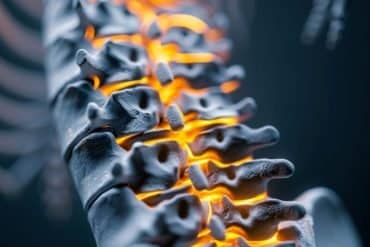Study finds insufficient sleep reduces insulin sensitivity.
A lack of sufficient sleep reduces the body’s sensitivity to insulin, impairing the ability to regulate blood sugar and increasing the risk of diabetes, according to researchers from the University of Colorado Anschutz Medical Campus and the University of Colorado Boulder.
The new study adds to a growing body of information linking a lack of sleep to a range of ailments including obesity, metabolic syndrome, mood disorders, cognitive impairment and accidents.
“We found that when people get too little sleep it leaves them awake at a time when their body clock is telling them they should be asleep,” said the study’s lead author Kenneth Wright Jr., PhD, professor of integrative physiology at CU-Boulder and also professor of medicine at the University of Colorado School of Medicine. “And when they eat something in the morning, it impairs their ability to regulate their blood sugar levels.”
Wright and co-author Robert Eckel, MD, an endocrinologist and professor of medicine at CU Anschutz, looked at 16 healthy men and women in their study.
Half of the test subjects initially slept for up to five hours a night for five days to simulate a regular work week.

Then they slept for up to nine hours a night for five days. The other half completed the sleep conditions in the opposite order.
Blood tests later showed that those who slept five hours a night had a reduced sensitivity to insulin, which in time could increase the risk of getting diabetes.
But when they slept nine hours a night, oral insulin sensitivity returned to normal. Still, it wasn’t enough time to restore intravenous insulin sensitivity to baseline levels.
“We did a study last year showing weight gain is caused by a lack of sleep and now we find that there could also be a risk of diabetes,” said Eckel, an expert in diabetes, cardiology and atherosclerosis. “While the exact mechanisms are unknown, it’s clear that a lack of sleep causes metabolic stress.”
Wright, director of the Sleep and Chronobiology Laboratory, believes the answer could lay in our body clock.
“We have a clock in our brain which controls 24-hour patterns in our physiology and behavior. It also controls the release of the hormone melatonin which signals our body that it’s night time,” Wright said. “High melatonin levels at night tell us to sleep.”
But if a person eats instead of sleeps during this time, it may alter the way the body responds to the food, impairing insulin sensitivity, he said.
“The body has to release more insulin to keep blood sugar levels normal,” Wright said. “Our bodies can adapt initially but over the long term they may not be able to sustain it.” Diabetes rates are skyrocketing nationwide, said Eckel. By 2050, he noted, as many as 33 percent of all Americans may have Type 2 diabetes.
“In this study we are dealing with healthy individuals,” Eckel said. “I think the next step is to test those at a higher risk of diabetes.”
Both researchers said the study involved a unique level of collaboration.
“Bob is a diabetes expert and I’m a sleep expert and we brought our expertise together here,” Wright said. “This is a great example of collaborative science.”
Funding: The study was funded by the National Institutes of Health and the Howard Hughes Medical Institute with the Biological Sciences Initiative/Undergraduate Research Opportunities Program at CU-Boulder.
Source: David Kelly – University of Colorado Anschutz Medical Campus
Image Source: The image is credited to Mikael Häggström and is in the public domain
Original Research: Abstract for “Morning Circadian Misalignment during Short Sleep Duration Impacts Insulin Sensitivity” by Robert H. Eckel, Christopher M. Depner, Leigh Perreault, Rachel R. Markwald, Mark R. Smith, Andrew W. McHill, Janine Higgins, Edward L. Melanson, and Kenneth P. Wright Jr. in Current Biology. Published online November 5 2015 doi:10.10.16/j.cub.2015.10.011
Abstract
MMorning Circadian Misalignment during Short Sleep Duration Impacts Insulin Sensitivity
Highlights
•Short sleep and associated circadian misalignment reduces insulin sensitivity
•Reduced insulin sensitivity was compensated by increased insulin secretion
•3 days adequate sleep restored oral glucose insulin sensitivity to baseline
•Circadian timing of food intake during sleep loss may elevate diabetes risk
Summary
Short sleep duration and circadian misalignment are hypothesized to causally contribute to health problems including obesity, diabetes, metabolic syndrome, heart disease, mood disorders, cognitive impairment, and accidents [ 1–7 ]. Here, we investigated the influence of morning circadian misalignment induced by an imposed short nighttime sleep schedule on impaired insulin sensitivity, a precursor to diabetes. Imposed short sleep duration resulted in morning wakefulness occurring during the biological night (i.e., circadian misalignment)—a time when endogenous melatonin levels were still high indicating the internal circadian clock was still promoting sleep and related functions. We show the longer melatonin levels remained high after wake time, insulin sensitivity worsened. Overall, we find a simulated 5-day work week of 5-hr-per-night sleep opportunities and ad libitum food intake resulted in ∼20% reduced oral and intravenous insulin sensitivity in otherwise healthy men and women. Reduced insulin sensitivity was compensated by an increased insulin response to glucose, which may reflect an initial physiological adaptation to maintain normal blood sugar [ 8 ] levels during sleep loss. Furthermore, we find that transitioning from the imposed short sleep schedule to 9-hr sleep opportunities for 3 days restored oral insulin sensitivity to baseline, but 5 days with 9-hr sleep opportunities was insufficient to restore intravenous insulin sensitivity to baseline. These findings indicate morning wakefulness and eating during the biological night is a novel mechanism by which short sleep duration contributes to metabolic dysregulation and suggests food intake during the biological night may contribute to other health problems associated with short sleep duration.
“Morning Circadian Misalignment during Short Sleep Duration Impacts Insulin Sensitivity” by Robert H. Eckel, Christopher M. Depner, Leigh Perreault, Rachel R. Markwald, Mark R. Smith, Andrew W. McHill, Janine Higgins, Edward L. Melanson, and Kenneth P. Wright Jr. in Current Biology. Published online November 5 2015 doi:10.10.16/j.cub.2015.10.011






